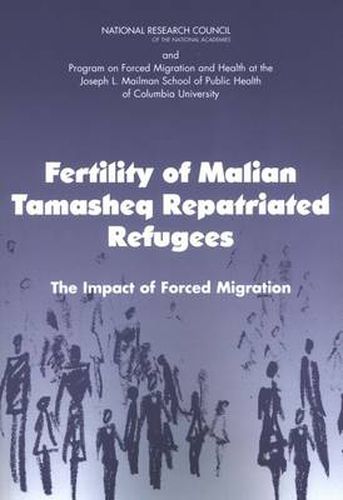Readings Newsletter
Become a Readings Member to make your shopping experience even easier.
Sign in or sign up for free!
You’re not far away from qualifying for FREE standard shipping within Australia
You’ve qualified for FREE standard shipping within Australia
The cart is loading…






In Africa many of the refugee flows in recent years have had a strong ethnic dimension; interethnic conflict or conflict between politically powerful groups with minority populations is often an important aspect of who is forced to flee. In most cases the origins of conflict occur in a multiethnic environment, and repatriation (if it happens) occurs in that multiethnic context, with implications for subsequent relationships between the groups in terms of political, economic, and numeric power. As the primary source of recruitment to a population, fertility is an essential component of postconflict restructuring. The disruption of fertility during the disorder of forced migration can itself be seen as part of the disintegration of society and identity; the impact of conflict and flight on reproduction may be an important indicator of the degree of crisis faced by the population. Postcrisis fertility and changes from the reproductive regime prior to the forced migration indicate not only how the population has responded to the multiplicity of changes and traumas, but also its ability to adapt and manipulate its new sociopolitical position. This report focuses on the specific experience of a single persecuted population whose sociopolitical history, along with their underlying marital and fertility regimes, will inevitably condition responses to conflict.
$9.00 standard shipping within Australia
FREE standard shipping within Australia for orders over $100.00
Express & International shipping calculated at checkout
In Africa many of the refugee flows in recent years have had a strong ethnic dimension; interethnic conflict or conflict between politically powerful groups with minority populations is often an important aspect of who is forced to flee. In most cases the origins of conflict occur in a multiethnic environment, and repatriation (if it happens) occurs in that multiethnic context, with implications for subsequent relationships between the groups in terms of political, economic, and numeric power. As the primary source of recruitment to a population, fertility is an essential component of postconflict restructuring. The disruption of fertility during the disorder of forced migration can itself be seen as part of the disintegration of society and identity; the impact of conflict and flight on reproduction may be an important indicator of the degree of crisis faced by the population. Postcrisis fertility and changes from the reproductive regime prior to the forced migration indicate not only how the population has responded to the multiplicity of changes and traumas, but also its ability to adapt and manipulate its new sociopolitical position. This report focuses on the specific experience of a single persecuted population whose sociopolitical history, along with their underlying marital and fertility regimes, will inevitably condition responses to conflict.